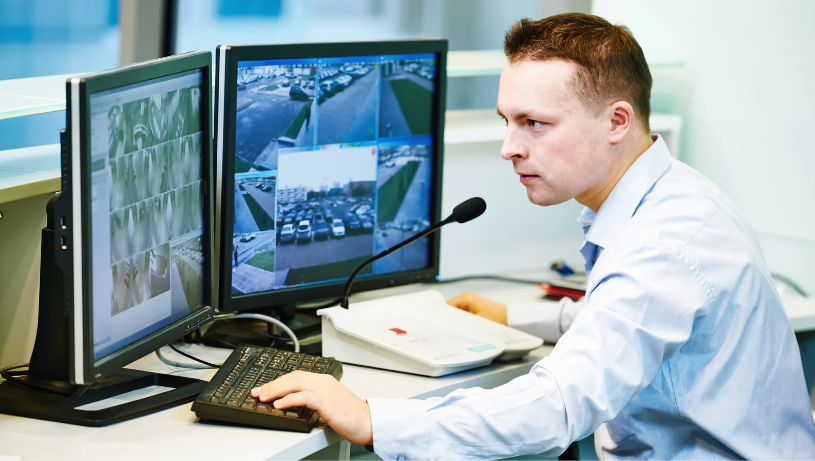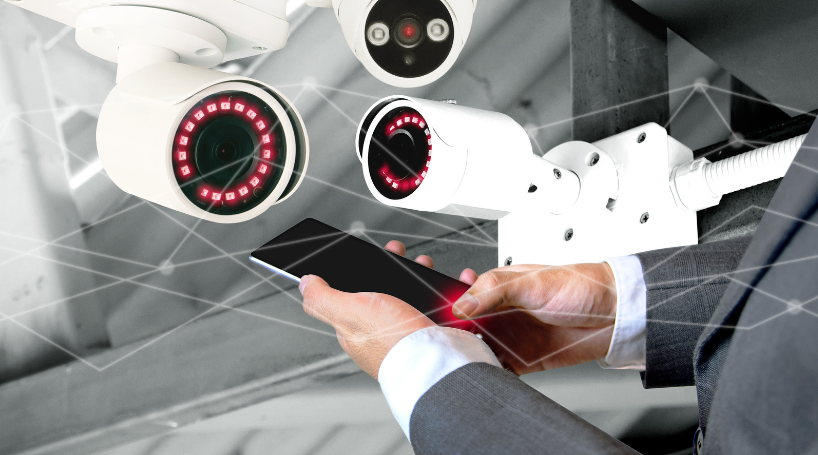In the dynamic landscape of security systems business, staying ahead is not just a strategy; it’s a necessity. As an industry expert, I’ve witnessed the evolution of security solutions to meet the ever-changing needs of businesses and homeowners alike. From smart surveillance cameras to advanced access control systems, the realm of security technology continues to expand, offering innovative ways to safeguard properties.
I’ll delve into the intricacies of the security systems business, exploring the latest trends, challenges, and opportunities that shape the industry. Whether you’re a seasoned professional or a newcomer curious about the security market, understanding the nuances of this sector is vital for making informed decisions. Join me as we unravel the complexities of the security systems business and discover what sets successful companies apart in this competitive field.
Security Systems Business
From Traditional Locks to High-Tech Solutions
 Transitioning from traditional locks to high-tech solutions has revolutionized the security systems business. In the past, conventional locks were the primary means of securing properties. However, with technological advancements, the industry has witnessed a significant shift towards sophisticated security measures. Today, high-tech solutions like biometric access control systems and smart surveillance cameras have become indispensable tools in safeguarding homes and businesses.
Transitioning from traditional locks to high-tech solutions has revolutionized the security systems business. In the past, conventional locks were the primary means of securing properties. However, with technological advancements, the industry has witnessed a significant shift towards sophisticated security measures. Today, high-tech solutions like biometric access control systems and smart surveillance cameras have become indispensable tools in safeguarding homes and businesses.
The impact of digital transformation on the security systems business has been profound. With the rise of automation, artificial intelligence, and the Internet of Things (IoT), security systems have evolved to provide more than just basic protection. Digitalization has enabled seamless integration of security devices, data analytics, and cloud-based solutions, leading to advanced security platforms that offer comprehensive protection against various threats.
Key Components of Modern Security Systems
 In the dynamic landscape of security systems, several key components play a vital role in safeguarding properties and individuals. Modern security systems leverage cutting-edge technologies to ensure comprehensive protection and efficient monitoring. Let’s explore the essential elements that constitute these advanced security systems.
In the dynamic landscape of security systems, several key components play a vital role in safeguarding properties and individuals. Modern security systems leverage cutting-edge technologies to ensure comprehensive protection and efficient monitoring. Let’s explore the essential elements that constitute these advanced security systems.
Surveillance technologies are the backbone of modern security systems, offering real-time monitoring and recording capabilities. High-definition cameras, both traditional and smart, are strategically placed to cover key areas and provide visual evidence in case of security breaches. These cameras can be integrated with cloud storage systems for data retention and remote viewing, enhancing overall security measures.
Access Control Mechanisms
Access control mechanisms are crucial for regulating entry and exit points in residential, commercial, and industrial settings. Biometric access systems, such as fingerprint scanners and facial recognition technology, provide secure and seamless access to authorized personnel while keeping intruders at bay. Electronic key cards and key fobs are also popular options that offer convenience and enhance security protocols.
Alarm Systems and Monitoring
Alarm systems are instrumental in detecting unauthorized entry or suspicious activities on the premises. Intrusion detection sensors, motion detectors, and glass break sensors are commonly used to trigger alarms and alert individuals or monitoring centers in real-time. These systems can be integrated with monitoring services that ensure prompt response to security incidents, adding an extra layer of protection to the property.
Challenges Facing the Security Systems Business
Cybersecurity Threats
 In the security systems business, one significant challenge that we constantly face is cybersecurity threats. These threats continue to evolve as technology advances, making it crucial for us to stay vigilant and proactive in safeguarding our systems. Security breaches not only compromise data but also pose a threat to the safety and privacy of our clients. It’s vital that I prioritize robust cybersecurity measures to protect against potential cyber attacks, ensuring the integrity of the systems I provide.
In the security systems business, one significant challenge that we constantly face is cybersecurity threats. These threats continue to evolve as technology advances, making it crucial for us to stay vigilant and proactive in safeguarding our systems. Security breaches not only compromise data but also pose a threat to the safety and privacy of our clients. It’s vital that I prioritize robust cybersecurity measures to protect against potential cyber attacks, ensuring the integrity of the systems I provide.
Another crucial challenge in the security systems business is ensuring compliance with privacy laws. As a provider in this industry, it’s essential that I adhere to strict regulations and guidelines to protect customer data and privacy. Failure to comply with these laws can result in severe consequences, including legal implications and damage to reputation.


